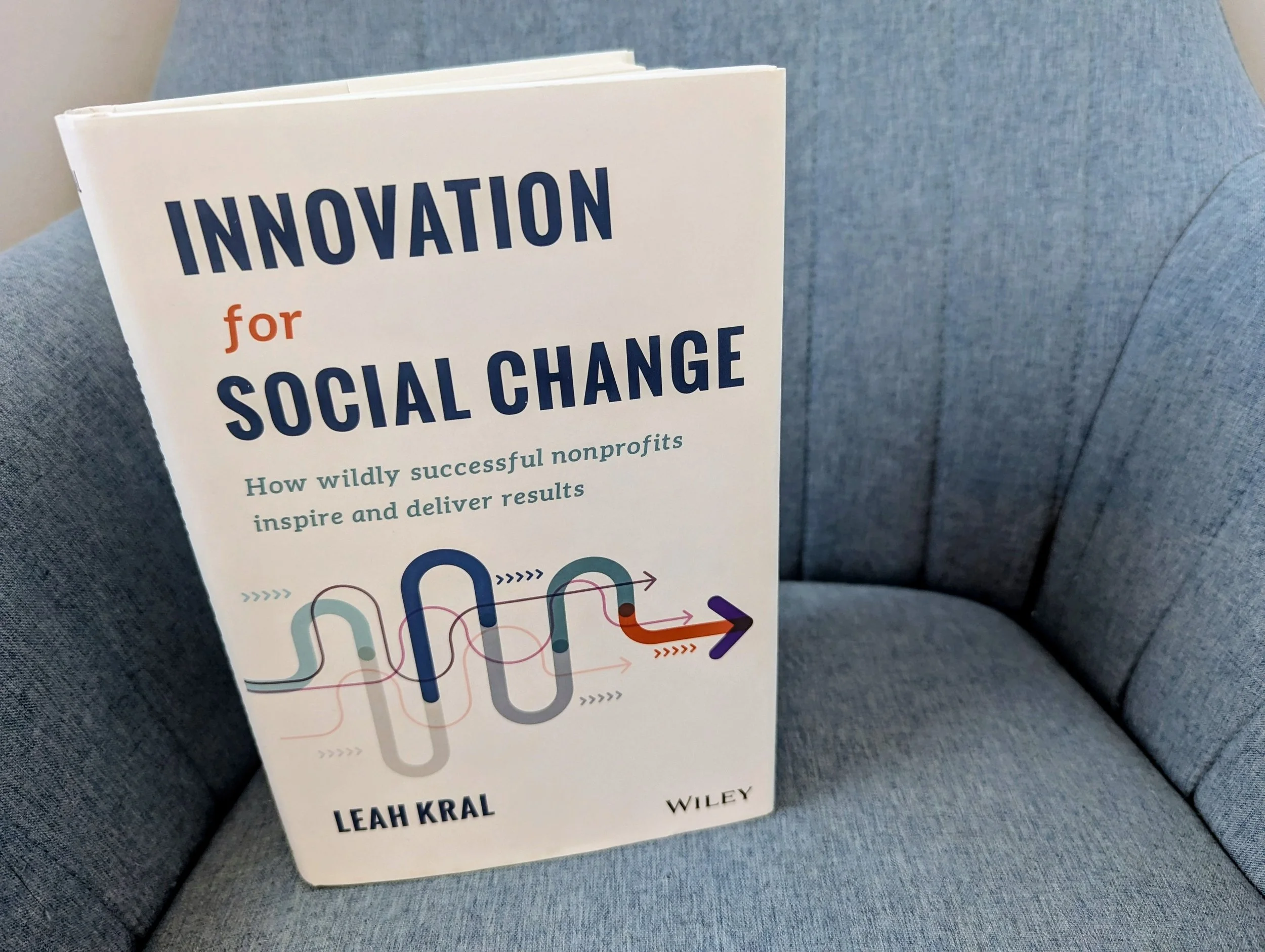NEWS
Insights for Change: Innovation is a collective undertaking
We hear often that we must innovate to survive, to progress, to succeed, but being told to innovate can be like being told to relax—easier said than done and incredibly frustrating to be told. That’s why I appreciate Leah Kral's book, Innovation for Social Change. Kral demystifies an intimidating concept, breaking it down into an accessible roadmap, including stories that ground it in reality and tools that make it actionable.
Insights for Change: Liberate leadership from the pyramid
Like every institution in the 21st century, religion today confronts existential questions about its future, uncertain of its place in an era where trust in institutions has eroded and traditional hierarchical organizational structures have started to flatten. The formerly reliable foundations of our religious life feel insecure–for no one more than clergy, who are largely trained to be solo, prophetic leaders of congregations. But in this uncertainty lies possibility. A new book by two religious leaders, Rev. Kathleen McShane and Rabbi Elan Babchuck, will help clergy, and all faith-rooted leaders, embrace the liberating opportunity this current moment provides. It’s time to adopt a new form of leadership, free of the burdens of pyramid-shaped empire that have shaped our past.
Insights for Change: Weaving networks
Houston, we have a problem. The complexity of the issues we face, both global and local, are simply too great for any one person or organization to take on alone. And yet, the systems in which we operate tend to incentivize heroic leadership, organizational competition for funding, and transaction over relationship. The good news? There's a different way if we shift our frameworks, incentives, and approaches: cultivating networks.
So you think things are bad? Build something better. Start by building bridges.
If you need a place to start, read We Need to Build: Fieldnotes for Diverse Democracy, a new book by Eboo Patel, Founder of Interfaith America. It is at once a rare tribute in these anti-institutional times to the importance of civic institutions, and a broad call to action relevant to an era of rapidly multiplying social movements. But unlike most calls to action these days, We Need to Build does not emotionally incite us to a particular political position or rally us behind a cause. It invites us to do the deep, sustained work of building the society we want.
With love as our guiding star, we are all innovators now
Faith-based innovation is having a moment. Or at least the start of a moment, one that will likely continue for some time as faith institutions wrestle with questions of how to remain relevant in this day and age and into a future of uncertainty. Faith-based innovation is by no means new, though, as Kenda Creasy Dean, professor at Princeton Theological Seminary and co-founder of Ministry Incubators, points out in her new book, Innovating for Love. And we definitely should not view it merely as a solution to institutional crisis, or a balm for institutional anxiety.
Insights for Change: Center the margin
A Way Out of No Way pushes us to interrogate the forces and narratives that shape our own thinking. It makes us ask whether and how our innovation will perpetuate or transform the dynamics that exile people to the margins of society. Doing so will undoubtedly make all of us more effective change makers.
Changemaker in the mirror: Equipping ourselves for a new game
Even before the pandemic abruptly disrupted the entire planet all at once, our world had become a place of constant change and accompanying uncertainty. It’s a new game, different than the one many of us have been taught to play - the one that plotted a linear, generally secure path from education to job to career. And to power, for those with the ambition and privilege to land in positions of leadership. The game has changed, and how we equip ourselves for it is the question at the heart of a new book by Henry De Sio, Changemaker Playbook: The New Physics of Leadership in a World of Explosive Change. Hint: everyone leads.
DC event: Putting Peace First, January 29
We’re excited to announce our first DC event, Putting Peace First: 7 Commitments to Change the World, in collaboration with Peace First, Swedenborg Center, and FaithJustice Foundation. Join us at Church of the Holy City on January 29 at 6 pm to talk about how DC faith communities can support young people to change our city. For 25 years, Peace First has been helping young people change the world. Come hear from Peace First founder Eric Dawson and DC’s own young changemaker and Peace First Fellow, Yasmine Arrington, about how young people can lead change.
The Spectacular Scale of Akshaya Patra: What a Group of Hindu Monks Can Teach Us About Changing the World
We don't often tell them as innovation stories, but history is full of examples of faith communities and institutions developing new ideas for addressing social problems. All the destructive things done in the name of religion or by religious people and leaders notwithstanding, when one looks to where good is happening in the world, one will often find people of faith. From building social movements to building schools and hospitals, faith communities have been innovating solutions, often quietly, for the good of humanity for millennia. And they are still doing so today, though the scale of these efforts sometimes feels small under the weight of today's complex problems.
Until one learns about Akshaya Patra.









